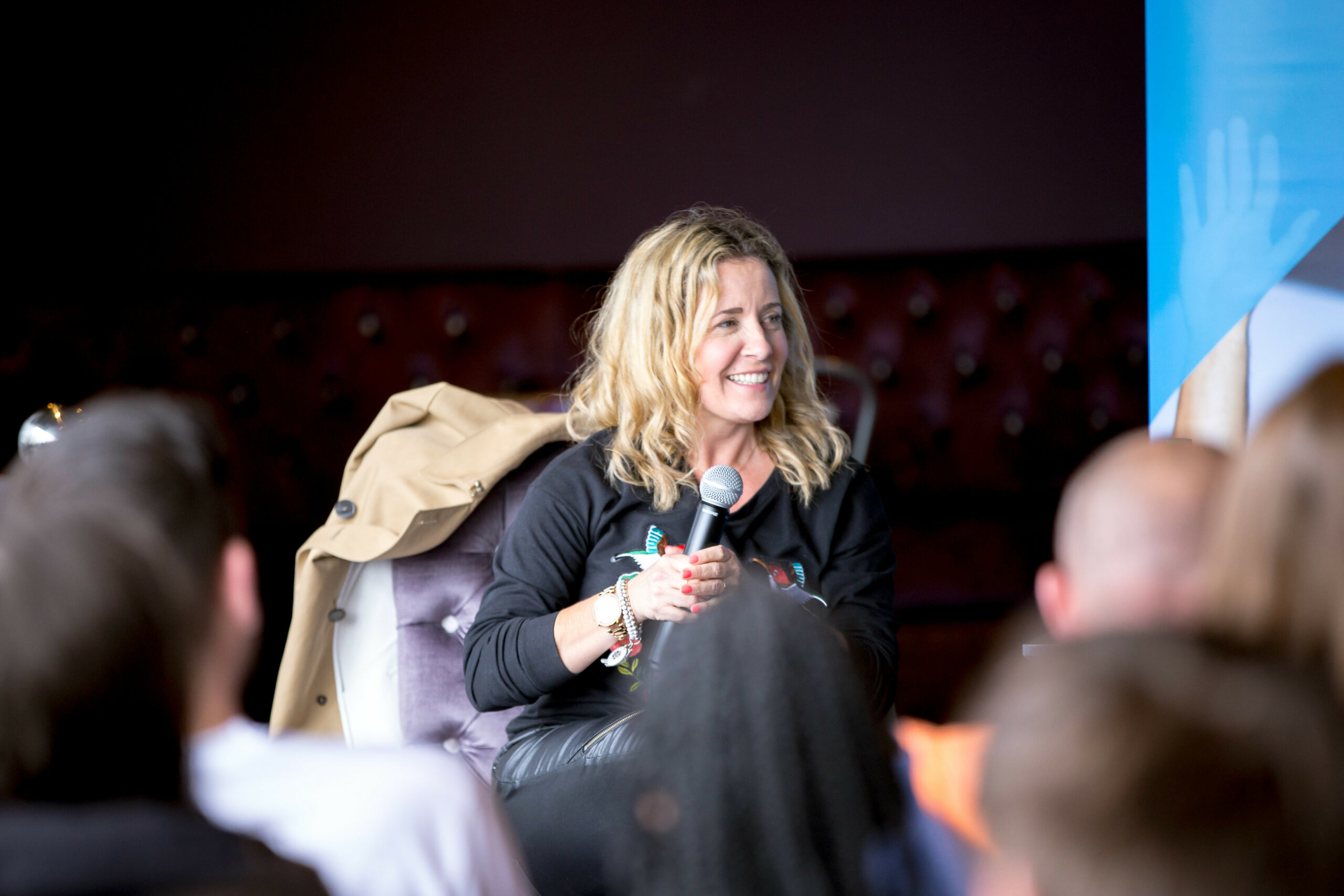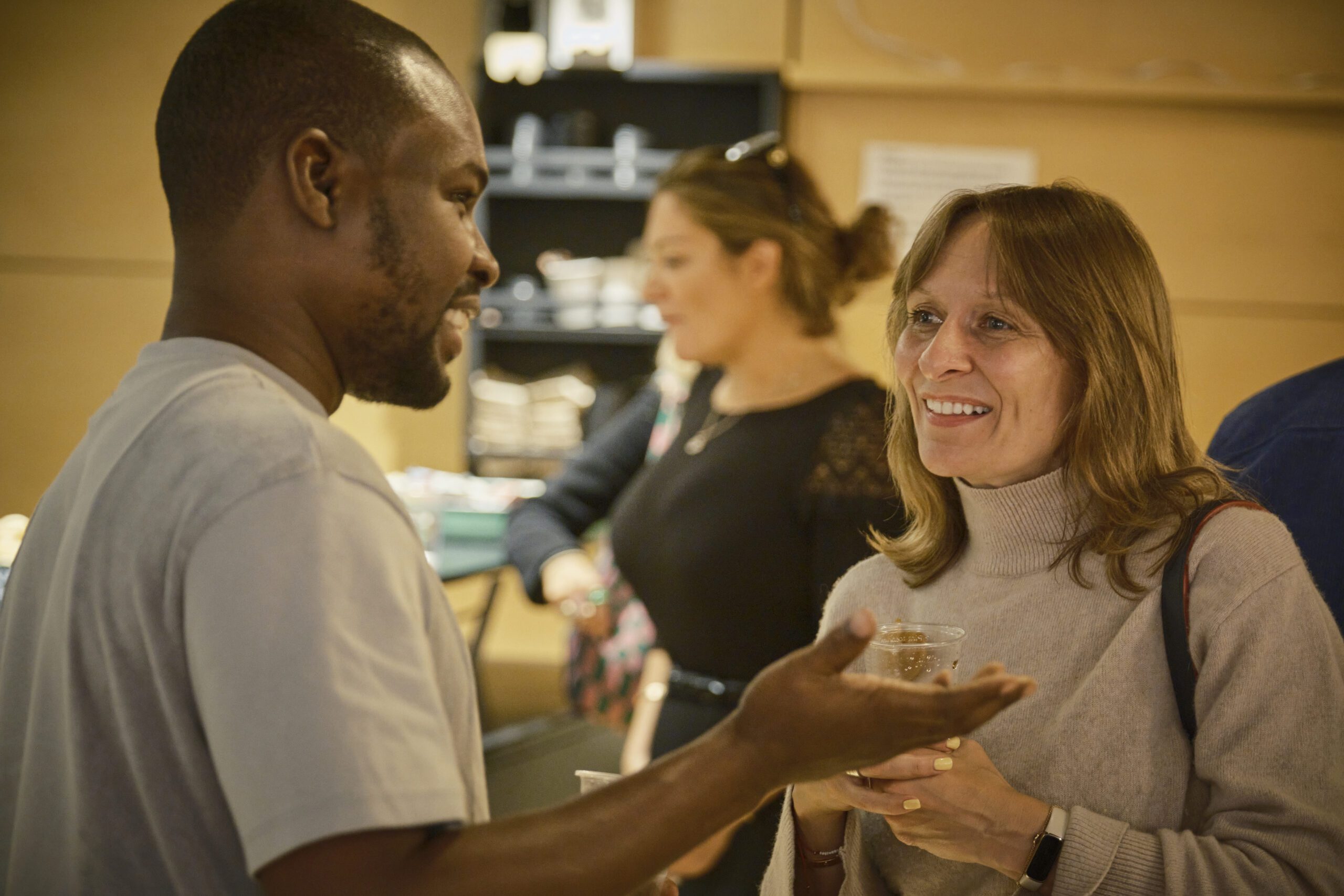Agent Nicola Bolton answers your questions about getting representation, having a good relationship with your agent, and succeeding as a performer
At our recent Liverpool Open House, senior agent at Regan Management, Nicola Bolton, was on hand to answer your questions from an agent’s point of view. Here are some of your most burning questions answered!
Gone are the days you have to live in London – as long as you are willing to travel.
Do I have to live in London to be considered for jobs? Will being located regionally hold me back?
“Gone are the days you have to live in London – as long as you are willing to travel,” says Nicola. “We work very closely with each office,” including their London branch, she says, but ultimately, they have their own jobs coming in based in the North.
Nicola points to the increasing use of self-tapes and a willingness to travel as your best assets. She also says that there is a change in casting trends at the moment – often, casting directors want to cast the ‘real thing’, so if they have a character from a regional location, they will try to find someone actually from there. This means that you shouldn’t try to change who you are. There’s more likely to be parts further from who you are in theatre, but in television and film, it’s much more likely that casting directors will go for someone closer to the character.
How do you feel about actors approaching casting directors directly?
Nicola says she totally understands the need for this, and the importance of continually “putting your name in the hat.” After all, a casting director won’t know when you’re free so it is fine to remind them when you are.
Is it possible to approach an agent if you haven’t had formal training?
It’s important to remember that every agent and casting director is different, and it’s vital that you do your research in order to determine how they like to be approached. As for training, Nicola says, “When I look at CVs, whether you’ve done a lot of training or a lot of work doesn’t matter. If you’ve been to a good drama school, that’s good. But there are different ways in.” Therefore, training doesn’t have to be the focus, but you should build up work to show your commitment and ability instead. Alongside working, Nicola suggests that you “keep doing classes, keep getting contacts, so casting directors know who you are.”
Make sure that when you have work or training to show, you outline things neatly and professionally on your CV and send a polite introductory email – never ring agencies, there simply isn’t time to take calls! While an email may take time to respond to, be aware that it’s a much better way to get in touch.
What makes for a good showreel?
Firstly, Nicola says that if you don’t have much work to show it’s important to create something for yourself to get filmed – write your own script, just a few minutes, and film it. Make sure it’s linked nice and clearly from your email, but don’t attach huge files. Often breakdowns will say they don’t want suggestions of anyone without a showreel, indicating just how important it is to have one. The quality of the tape is secondary, says Nicola. Don’t include any montage or music overlay – have something clear, straightforward and which shows who you are and what you can do.
How can I tell if an agency is right for me? How can I tell if an agency/agent is reputable?
Nicola says this is very individual, but it’s very important to do your research. Make sure you investigate an agency’s website thoroughly, as well as their social media accounts. At the end of the day, you as an individual have to be able to work well with your agent, and this can be as much about personality as it can be about their quality or prestige as an agent. Investigate the quality of work they receive, and keep in mind the sort of work you want to be doing.
When meeting with a performer for the first time, Nicola says she will “grill them and ask them to grill me!” The expectation is that you know a bit about your casting type, you have questions ready to ask, as the ‘interview’ goes both ways. So, remember that the relationship between agent and performer is a two-way street!

How many people are you an agent for? Is there a limit?
Nicola says she manages around 100 performers between herself and her assistant, though she has 60 performers or so just herself. There’s no real limit to how many performers an agent could represent, but it does depend on what the agent themselves can handle.
Do agents watch shows other than grad showcases?
Yes, says Nicola, and it’s worth inviting agents to watch you perform, regardless of where or when it is. Try not to bombard an agent too much with invitations – a nice rule to follow might be to try again every 3 months or so.
Do you have certain times of year when you take on new performers? Is there a quota on how many actors of a certain type you take?
No, says Nicola, there are no set times when new performers are accepted for representation. Of course, more performers tend to be taken on during showcases, but it is generally as and when. As for a limit on certain types of actors, this is not generally a consideration. “If we see something in a new person, we’d take them on,” she says. “If I had 5 people with the exact same hair colour, height, etc., we may not take more on, however, it doesn’t happen often.”
Are there any key things performers should make sure to do?
Nicola says one of the biggest things to actively do is to be informed about the industry. Know what’s going on in theatres, know what shows are coming up. See performances, write to the directors – express your interest. It’s also important to reflect on what you’re good at – make sure you are putting the relevant skills on your Spotlight, as Nicola says, “Your Spotlight is your window to the world.” If there are skills you had as a child, make sure you brush up, “Anything extra is always a bonus and will see you put forward for more things.” Of course, you do actually have to be able to do what you say you can do, so keep skills sharp!
Otherwise, make sure you have a headshot that looks like you, keep your credits up to date, and have your showreel and/or voicereel ready to go. Nicola advises to always keep working at your craft, “If you’re not doing something all the time – a class, whatever, you’re not a performer!”
Nicola’s final advice is to remember that work creates work, and it’s important to remain open minded about your career, as well as reassessing what you are doing thoughtfully.
Thank you again to Nicola Bolton for her advice and giving up her time to answer questions! See more of what Nicola and Regan Management is up to online here or on Twitter.
Information correct as of May 2017.




















